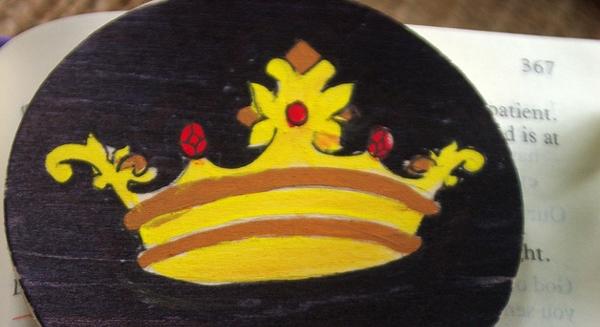Antiphons. They’re the lines you say before and after the psalms during morning and evening prayer, aren’t they? In the case of the O Antiphons, they also find expression in daily Mass in the days leading up to Christmas, and in the hymn ‘O Come, O Come, Emmanuel’.
The liturgical context is all well and good, but how do you pray with an antiphon? We know how to recite them, how to sing them, but there must be a way for us to make them more personal, to draw food for thought from them. When you’re not quite sure it’s always good to have an Ignatian fallback plan – imaginative contemplation.
I settle down and welcome God’s presence. My breathing is steady and my body is at rest. Jesus, I belong to you. Jesus, I belong to you. Jesus, I belong to you.
I read the text slowly.
O Come, Desire of the nations, bindin one the hearts of all mankind;bid every strife and quarrel ceaseand fill the world with heaven’s peace.I am drawn to the last line: ‘and fill the world with heaven’s peace.’
That sounds wonderful. A world where everyone gets along. Families enjoy one another’s company. Neighbours are eager to help each other out. National leaders inspire and unify. The evening newscaster only has good things to say. Yes, Lord. Thy Kingdom come. Thy will be done.
That went rather well. Maybe tomorrow I’ll do the same with another line. Or maybe I should follow Ignatius’s advice when prayer is spiritually consoling – do it again, and go deeper.
As I enter into the mediation for the second time, there’s a question forming in my mind. What is this peace actually going to look like in reality? My imagination produces a series of newspaper headlines this time:
GOVERNMENT ANNOUNCES SOCIAL HOUSING BUILDING BOOM
EUROPE FIRST CARBON NEUTRAL CONTINENT
LAST UN REFUGEE CAMP CLOSES
This sounds wonderful. The politicians have finally got their acts together and are tackling the problems that really matter. The homeless have shelter. The ice caps are growing again. War is over. Marvellous. Yes, Lord. Thy Kingdom come. Thy will be done.
As I jot down some thoughts about the prayer I notice something quite startling. I don’t know any of the people involved.
I don’t know any of the homeless who will be sheltered. I don’t know any of the people from low-lying countries whose land is no longer threatened by rising sea-levels. I don’t know any of the refugees who can return home to rebuild their lives. I don’t even know the politicians or civil servants who are going to make all of this happen. I’m not personally invested in this process at all. I just want faceless people to sort out other faceless people’s problems. I’m out of touch.
The next day I begin where I left off – getting in touch again with that uncomfortable feeling of alienation. I return to the text again.
This time the second line – ‘bind in one the hearts of all mankind’ – stands out from the page.
My heart clearly isn’t bound to those who are suffering. I don’t know their stories. I can’t see their faces. I don’t even know any of their names. In reality my goodwill for all humankind only extends to all the humans who are my kind – respectable folk. Pope Francis wants the Church to be like a field hospital. Even if it was, I worry that I would probably spend more time socialising in the staff tent than tending to the wounds of the patients.
A few days later I find these words of the late Fr Peter-Hans Kolvenbach, former Superior General of the Jesuits.
When the heart is touched by direct experience, the mind may be challenged to change. Personal involvement with innocent suffering, with the injustice others suffer, is the catalyst for solidarity, which then gives rise to intellectual inquiry and moral reflection.[1]
He says the heart is touched by direct experience of suffering. A lot of my experience of suffering has been indirect, second-hand, mediated by television, internet and second-hand conversation. They bring the suffering close enough for my mind to register it, but not close enough to move my heart into action. I see the chain now: Indirect experience – Inaction – Inertia.
And so the antiphon becomes for me a new prayer:
Lord, I’m out of touch. Show me the real strife and quarrels that are under my nose. I’ve spent years ignoring it. Jesus, you are the Desire of the nations. That includes me. Here I am. Show me their faces. Let me know their names. Bind our hearts together so that I know their pain. Let the pain change me. Help me to do what I can for them. And for once let this little corner of the world be filled with heaven’s peace. Amen.
Niall Leahy SJ is a member of the Irish Province of the Society of Jesus studying theology at Regis College, Toronto.
[1] Peter-Hans Kolvenbach, S.J., Keynote Address at Santa Clara University's Justice Conference, October 6, 2000







